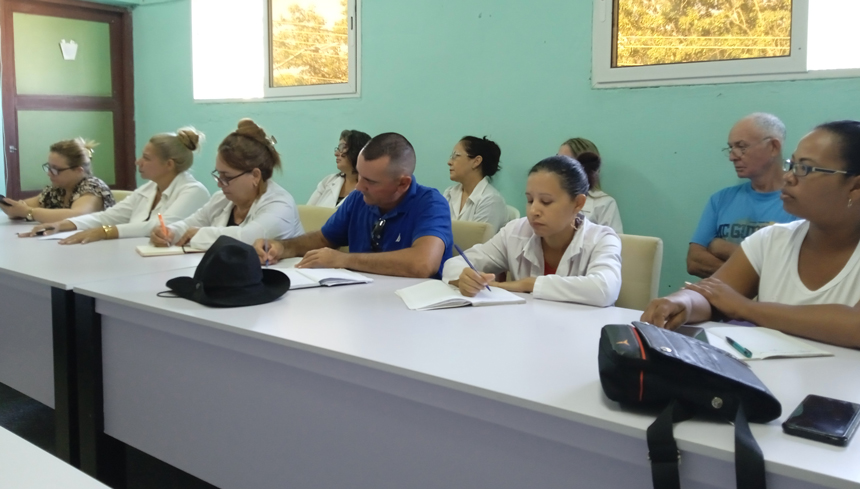
The First Provincial Workshop on Addictions, led by Health specialists in Las Tunas, was held on the definitions of concepts to distinguish which are drugs of abuse, the addicted patient, and each of the types of drugs, as part of a work strategy aimed at dispensing, training, and dialogue in the management of patients.
Las Tunas, Cuba.- The meeting was aimed at psychologists, child and adult psychiatrists, representatives of basic work groups, and Mental Health services, together with authorities from the general direction of the sector, who discussed the confrontation of this phenomenon that affects the new generations due to the early initiation of drug abuse.
Dr. Alejandro Mestre Barroso, a specialist in Toxicology, from the General Teaching Hospital Doctor Ernesto Guevara de la Serna, emphasized the main substances that are consumed, such as chemicals, marijuana, cocaine, and some medications.
They also focused their attention on the addicted patient, that consumer who has four purposes but before reaching them may be a carrier of a sexually transmitted infection, in an accident, have a suicide attempt, and be a victim of violence.
 A warning call arose among professionals in the sector, and is that the drug that circulates today, is not the same that will move through the streets for the next week, and this is due to the change of patterns from a clinical look, which in turn makes it change behavioral patterns.
A warning call arose among professionals in the sector, and is that the drug that circulates today, is not the same that will move through the streets for the next week, and this is due to the change of patterns from a clinical look, which in turn makes it change behavioral patterns.
The biggest challenge is in prevention, any focus on drugs and abuse is insufficient because patients have a loss of vision of danger, therefore the way to prevent and carry the message must be different.
This is a multisectoral problem, which must be taken hand in hand and led by public health, to avoid making mistakes and to be able to cleanse society of these harmful substances.
Dr. Norkis Sanchez Alonso, head of Medical Assistance, pointed out that the sector plans to dispense patients, in addition to the timely use of Mental Health services, with the incorporation of specialists in the community outreach, together with the improvement of professionals from Primary Health Care to guarantee an integral assistance work to face this problem and continue the development of the country.
In the final minutes, it was announced that in the province, the greatest bet is on multicenter projects that integrate professionals from the Mental Health Services, the provincial hospitals and the Clodomira Acosta Psychiatric Hospital, the Hygiene and Epidemiology centers, and the ProSalud departments.
The objective of these initiatives is to intervene in the communities to increase the perception of the sequelae such as schizophrenic disorders, geno-embryotoxic effects during childbearing age, neurological alterations of the baby, ectopic pregnancies, and neurodegenerative diseases.






